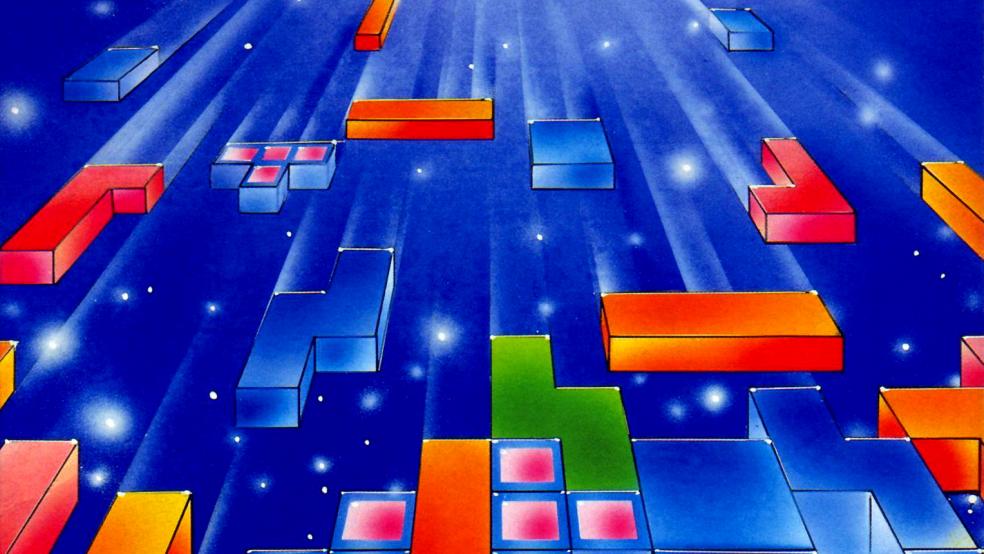When it comes to games, there’s no beating the classics. Especially when that classic can help you lose weight, like Tetris reportedly does.
The popular game tasks players with arranging an endless stream of falling, oddly shaped blocks known as “tetronimoes” into horizontal lines. Originating in Russia in 1986 as the brainchild of Alexey Pajitnov, it has already been shown in studies to reduce flashbacks from PTSD, boost brain efficiency, and increase cerebral cortex thickness.
RELATED: THE 10 BEST-SELLING VIDEO GAMES OF 2013
The psychological effect in which frequent players of the popular arcade game see the iconic falling blocks when they close their eyes has become so well-known that it has entered the popular lexicon as “the Tetris effect.”
Now, it seems, the game has yet another brain benefit.
According to a study published in the journal Appetite - a “journal of behavioral nutrition” with the title of a trendy French fashion magazine - playing Tetris reduces cravings for forbidden foods by 25 percent. If this sounds statistically negligible to you, bear in mind that this is only for three minutes of game time.
Those who participated in the study were compared to a control group who were forced to watch a fake “loading screen” that never transferred into the actual game. Though it was created mainly with eating in mind, the study also proved Tetris to be effective at stopping cravings for caffeine and nicotine.
RELATED: CANDY CRUSH—THE SWEET AND PROFITABLE GAMING ALLURE
How does this work? The study was created as a demonstration of Elaborated Intrusion Theory, a theory which suggests that mental cravings are created through stimulation from visual images, be they imagined or seen in a magazine. As reported by PsyBlog, One of the study’s lead authors, professor Jackie Andrade, said this:
“Episodes of craving normally only last a few minutes, during which time an individual is visualizing what they want and the reward it will bring...But by playing Tetris, just in short bursts, you are preventing your brain creating those enticing images and without them the craving fades.”
Basically, then, instead of wandering to illicit thoughts of donuts or chocolate or a KFC double down, your brain is so fixed to the screen that the pressing need for a line piece to appear, wiping out four rows of blocks in a blaze of glory, trumps any petty desire for a quick snack or smoke.
Though this anti-craving effect has only been tested with Tetris, it would be interesting to see if the psychological effect extends to other video games and puzzles, too – especially those created for the sole purpose of improving brain function like Lumosity.
For now, though, it might be a good idea to shy away from the enticing plate of brownies and instead engage in a few rounds of preventative block shifting.
Top Reads from The Fiscal Times:



